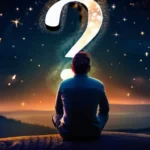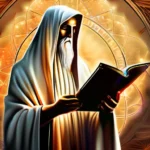Explore the fundamental principles, key figures, and arguments of theism in this detailed article.
Theism is a belief system that posits the existence of one or more deities. In this article, we will delve into the intricacies of theism, examining its history, key figures, and arguments. Whether you are new to the subject or seeking a deeper understanding, join us as we explore the fascinating world of theism.
The Origins and Evolution of Theism
Imagine tracing the origins of a river, how it starts as a mere trickle and slowly forms into a mighty stream that winds through history. Theism, much like this river, has its roots deep in ancient civilizations but has evolved significantly over millennia. Let’s dive into the fascinating journey of The Origins and Evolution of Theism.
Where did it all begin? The earliest forms of theistic belief can be traced back to ancient Sumeria, where people worshipped many gods who controlled various aspects of nature. These early civilizations saw their world as teeming with divine forces that needed appeasing through rituals and sacrifices. This polytheistic approach was a natural extension of human imagination and fear, attributing every phenomenon to some form of supernatural intervention.
As we move forward in time, the river of theism broadened into diverse streams. In ancient Greece, philosophers like Plato and Aristotle contemplated the nature of a singular divine being or ‘Demiurge.’ These thinkers wrestled with metaphysical questions about the existence of a perfect, unchanging being who was both the creator and the lawgiver of the universe.
How did monotheism take shape? The concept of a single, all-powerful God began to solidify in ancient Israel through figures like Moses and later prophets. The idea spread further with the advent of Christianity and Islam, which both claim their founders as messengers from this one God. This shift marked a significant departure from the polytheistic beliefs of earlier societies, emphasizing personal faith over communal rituals.
Throughout history, theism has faced numerous challenges and transformations. In the Middle Ages, theologians like Thomas Aquinas attempted to reconcile Aristotelian philosophy with Christian theology, leading to complex arguments about the nature of God’s existence and attributes. Later, in the Enlightenment, thinkers like Voltaire criticized religious dogma, questioning its basis and the moral implications of divine command theory.
Today, as we stand at the banks of this ever-evolving river, theism continues to be a dynamic force. Contemporary movements such as Christian fundamentalism or liberal theology reflect ongoing debates about faith, science, and ethics. Theism’s journey is far from over; it will continue to shape human understanding and experience in profound ways.
As we explore further into this comprehensive guide, remember that the story of The Origins and Evolution of Theism is not just a tale of belief but also a narrative of human curiosity, struggle, and growth. Each chapter adds another layer to our understanding of one of humanity’s most enduring ideas.
Key Figures in Theism: A Historical Overview
Imagine stepping into a vast library where every book represents a different era and philosopher, each one shedding light on Theism. From the ancient Greeks to modern theologians, influential figures have played a pivotal role in shaping our understanding of deities and divine beings. Let’s dive into the lives and works of these key individuals who have left an indelible mark on theism.
First, consider Socrates, whose teachings were rooted in ethics and morality, indirectly influencing philosophical discussions about the gods. Through his method of questioning, Socrates challenged conventional beliefs, leading us to wonder: Could our understanding of divinity be more profound than what meets the eye?
Then there’s Plato, whose works such as ‘The Republic’ explore ideas of justice and goodness that often intertwine with notions of a divine realm. His concept of the Forms raises questions about whether reality itself is somehow connected to an eternal, unchanging realm overseen by a divine being.
Aristotle, on the other hand, brought a more empirical approach to understanding divinity through his natural philosophy. His works on causality and teleology suggest that there must be a final cause or prime mover behind the workings of the universe—a concept that has resonated deeply in various forms of religious thought.
Fast forward to the medieval period, where figures like Averroes (Ibn Rushd) and later, Thomas Aquinas, further developed philosophical arguments for the existence of God. Their works, like Aquinas’s ‘Summa Theologica,’ use a mix of reason and revelation to argue that the existence of God can be understood through both faith and rational inquiry.
As we move into the modern era, thinkers such as C.S. Lewis and Pascal Boyer have explored the psychological and cultural aspects of belief in divinity. Their writings challenge us to ask: How does our understanding of God evolve with new scientific discoveries? Do innate cognitive biases play a role in how we perceive divine beings?
In conclusion, these key figures in theism offer rich insights into our quest for understanding the divine. Each one’s work not only contributes to philosophical and theological discourse but also raises intriguing questions that continue to shape contemporary discussions on divinity.
The Arguments for Theism
The arguments for theism have been debated by philosophers and theologians for millennia, each one seeking to validate the existence of a supreme being through logical reasoning and philosophical insights. One of the most compelling arguments is the cosmological argument, which posits that everything in the universe must have a cause, leading us to the idea of an uncaused first cause or prime mover. Isn’t it intriguing how we often find ourselves questioning our existence and the world around us? Could there be a more fundamental reason behind all this complexity?
The teleological argument, also known as the argument from design, asserts that just like a watch requires a watchmaker, the intricate workings of nature imply an intelligent designer. Here’s a metaphor to consider: if you found a computer in a forest, would you assume it was formed by natural processes or believe someone created it? The complexity and purpose in the universe seem to suggest a creator.
The ontological argument, developed by medieval philosopher Anselm of Canterbury, takes a more abstract route. It argues that God’s existence is necessary for the fullness of reality itself. If we can conceive of a being who is all-powerful, all-knowing, and all-good, doesn’t it follow that such a being must exist? This argument delves into the very nature of existence, challenging us to think deeply about what makes something real.
These arguments, while differing in their approaches, share a common thread: they seek to provide rational support for the belief in a deity. Each one presents a unique perspective on why we might believe in God, whether through the order and complexity of the universe or the very nature of existence itself. It’s a fascinating exploration that invites us to question our own beliefs and the world around us.
Which argument do you find most compelling? Do these philosophical discussions give you pause for thought, or do they seem too abstract to make a real impact on your understanding of reality?
Theism in Modern Times: Contemporary Debates
Theism, like a vast landscape, sprawls across the contemporary intellectual terrain. In modern times, it stands not just as a philosophical belief but as a subject of heated debate. How do science and religion coexist in this new era? Is the problem of evil a paradox that challenges the very existence of God? And what does it truly mean to believe in a God when our understanding of the universe seems so vast and complex?
The relationship between science and religion is one of the most contentious areas. On one hand, skepticism about religion often stems from the scientific community’s empirical approach, which demands evidence for every claim. Yet, believers argue that faith can exist independently of scientific validation, suggesting that spiritual truths transcend the measurable realm.
The problem of evil is another profound challenge to traditional theistic beliefs. If God is all-powerful and good, why does evil persist in the world? This question has led many to explore theodicy, or attempts to reconcile this paradox. Some argue that evil serves a necessary role in developing moral virtue; others propose that our finite understanding cannot grasp the divine will.
The nature of God itself is another area of intense discussion. Is God a personal being, intervening in the world, or an impersonal force? Modern theists offer various perspectives, from pantheism, which views God as the universe, to process theology, which sees God as evolving alongside creation. These different conceptions of deity reflect a deepening engagement with both historical and contemporary philosophical and theological traditions.
As we navigate these debates, it becomes clear that theism in modern times is not static but dynamic, shifting to address new questions and challenges. It remains a rich field for exploration, inviting us to ponder fundamental aspects of existence—purpose, morality, and meaning—in ways that are both timeless and relevant.
Theism Around the World: Cultural Perspectives
Theism, a belief system centered around the existence of at least one deity, varies widely across cultures and religions. Imagine wandering through a vast forest where every tree stands for a different cultural perspective on God. In one corner, you might find the dense, ancient trees of Hinduism, with its multitude of deities and complex pantheon. In another, there could be the towering pines of Christianity, standing tall but not without their branches entwined with various denominations. And closer to a riverbank, you may see the smaller, yet vibrant saplings of Islam, each striving towards the same goal but sometimes competing for attention.
Each culture has its unique way of understanding and interacting with Theism. For instance, in Hinduism, deities are seen as manifestations of a single ultimate reality, Brahman. This belief system emphasizes a deep personal relationship with these gods through rituals and meditation. Contrast this with the Abrahamic religions—Judaism, Christianity, and Islam—which focus more on monotheistic principles and moral codes. In these faiths, God is often seen as an omnipotent, omniscient, and merciful being who governs the universe with strict laws.
Moreover, each culture interprets Theism in distinct ways. For example, in traditional Chinese religions such as Taoism and Confucianism, deities are often depicted as natural forces or ancestors rather than anthropomorphic beings. This approach to Theism highlights a harmonious coexistence between humans and nature, encouraging reverence for the divine without idolizing human-like gods.
In contrast, many indigenous cultures worldwide maintain a belief in spirits that are deeply connected to their environment. These beliefs often revolve around maintaining balance within the natural world, where each element has its own spirit or deity. This form of Theism is not only spiritual but also practical, influencing every aspect of life from farming practices to social norms.
Understanding these diverse cultural perspectives on Theism reveals a complex and rich tapestry of beliefs and practices. Each culture adds its unique threads, making the fabric of religious diversity both beautiful and challenging to navigate. By exploring this diversity, we gain insights into how different societies interpret and engage with spiritual concepts, enriching our own understanding of human spirituality.
The Future of Theism: Predictions and Trends
As we look towards the future, one cannot help but wonder about the trajectory of theism. Will it continue to be a central pillar in human society, evolving with the times, or will it face challenges that may lead to its decline? The answers lie in understanding current trends and anticipating how societal attitudes and scientific discoveries might shape the future of belief.
Will technology reshape our religious practices? Imagine a world where virtual reality allows people to experience spiritual realms as vividly as visiting a physical church. Could this shift in engagement change how deeply we connect with our faith? Will there be a blend of traditional rituals and modern digital experiences, creating new forms of worship that resonate more profoundly with younger generations?
Theism may also face challenges from scientific advancements. As our understanding of the universe deepens through astronomy, physics, and even neuroscience, questions about the nature of existence and consciousness will only grow. How might these discoveries impact belief in a higher power? Will they lead to new interpretations or perhaps even a shift towards atheism among some?
Will there be a resurgence in pantheistic beliefs? As we contemplate the vastness of the universe, it’s natural to question the presence and role of a singular deity. Could this contemplation lead to a greater appreciation for nature itself as divine? Pantheism, where God is seen as manifesting in all things, might gain more followers who find solace in connecting with the world around them rather than a distant divine being.
The future of theism may also see a greater emphasis on ethics and social justice. As society becomes more aware of global issues, religious leaders could play pivotal roles in advocating for change. Will theism adapt to become not just a source of personal salvation but also a driving force for communal good? This transformation would require a dynamic reimagining of traditional doctrines to align with contemporary values.
As we stand on the brink of an uncertain future, one thing is clear: theism will continue to evolve. It’s up to us—individuals and communities—to shape its destiny in ways that resonate with our shared human experience. The journey ahead may be fraught with challenges, but it promises new possibilities and deeper connections.
Conclusion
 Theism is a complex and multifaceted belief system with a rich history and diverse adherents. By understanding its core principles and key figures, we can gain valuable insights into human beliefs and the nature of the divine.
Theism is a complex and multifaceted belief system with a rich history and diverse adherents. By understanding its core principles and key figures, we can gain valuable insights into human beliefs and the nature of the divine.











